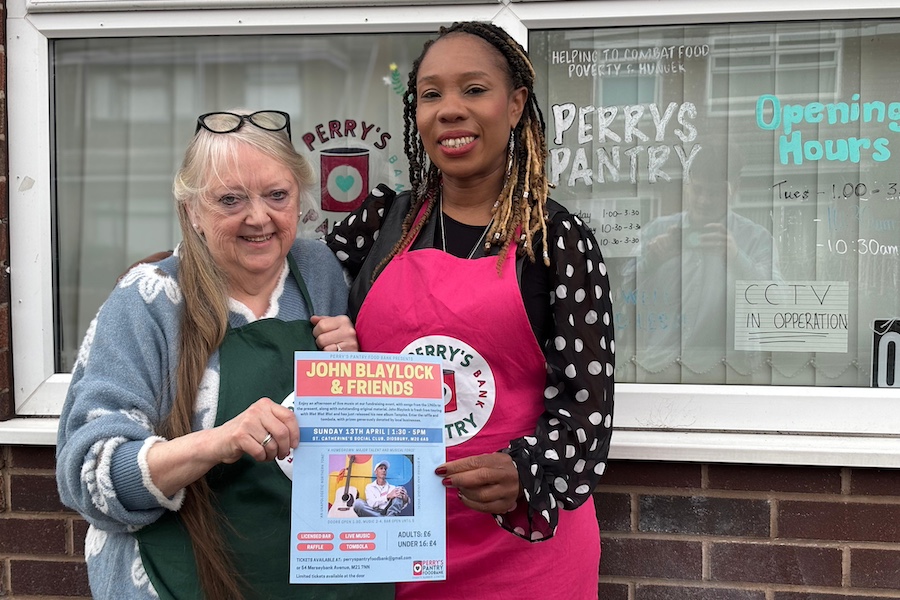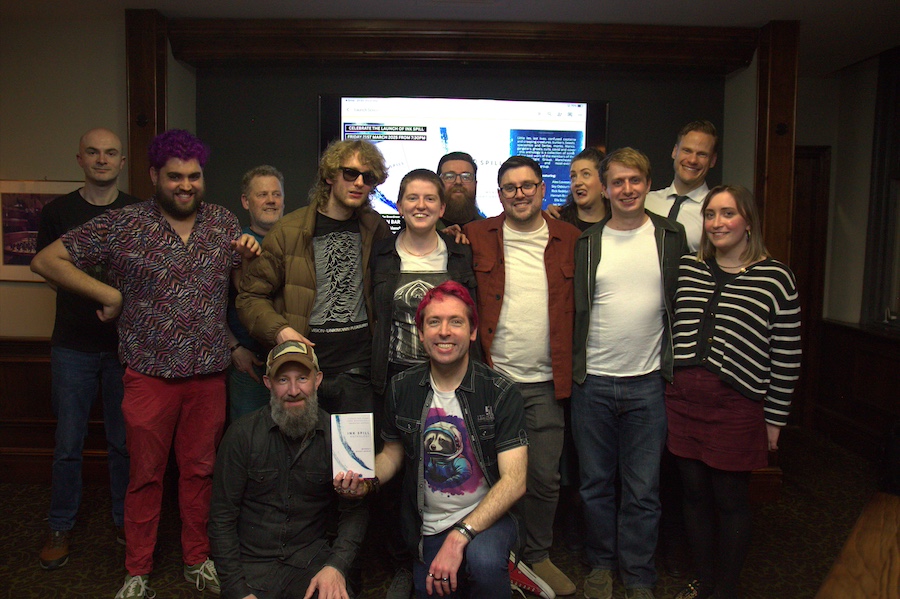The changing taste of Manchester’s Chinatown
- Written by Ray King
- Last updated 8 years ago
- City of Manchester, Community, Food & Drink
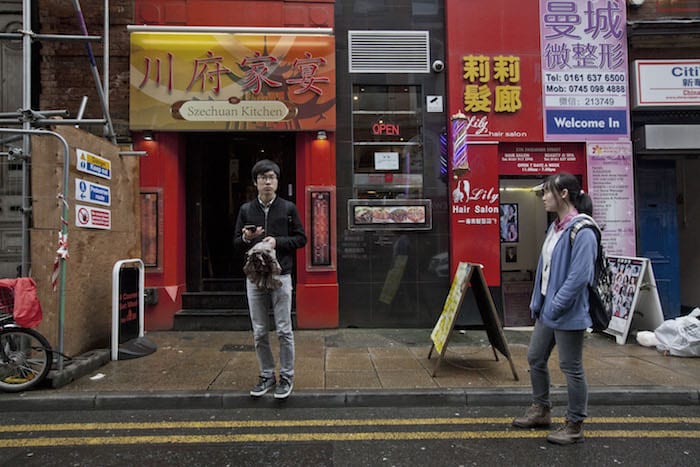
The anniversary slipped by almost unnoticed. The gateway to Chinatown Manchester, the ornate, three-tiered pagoda arch spanning Faulker Street is 30 years old this year.
Painted in red and gold and adorned with dragons and phoenixes, colours of symbols of luck and prosperity, the first true Imperial Chinese arch erected in Europe was “opened” 1987.
In the three decades since then, little on the surface seems to have changed in the surrounding area. But the truth is there have been big happenings in Manchester’s little China. And the biggest revolution of all is in the style of cooking in the local restaurants. Formerly overwhelmingly Cantonese, now increasingly the cuisine of Beijing, Shanghai, Hunan and Szechuan.
Although a Chinese consulate opened in the city in the 1930s, reflecting the importance of the Sino-British textile trade, and the Ping Hong restaurant opened on Mosley Street 1949, Chinatown wasn’t really recognised as such until the 1970s.
The first Chinese restaurants in the city centre served Anglo-Chinese food mainly for non-Chinese clientele. The rise of places offering authentic cuisine was a sign that the local Chinese population was beginning to grow.
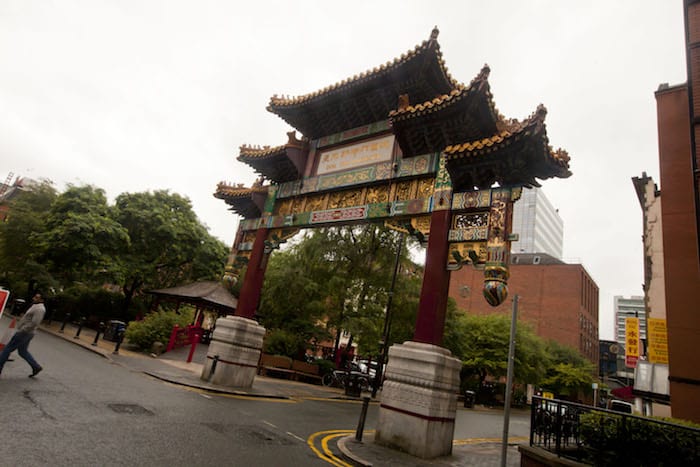
Most of the immigrants were Hakka people – farmers from Lo Wai and the New Territories – who took advantage of compensation paid to them by the government of booming Hong Kong who wanted to build on their land.
The newcomers found a ready market for suburban fast food takeaways, often serving anglicised Chinese dishes like chop suey, chow mein and foo yung alongside fish and chips, with families living above the shop. Manchester and its surrounding area proved an attractive destination and the city’s Chinatown emerged to cater for their needs.
It did not take long for Chinatown’s entrepreneurs to provide for their compatriots in the catering business and, with the establishment of a Hong Kong government office and branches of the Bank of China and the Hong Kong and Shanghai Bank in the 1970s, Manchester became a favoured place of settlement for Chinese people in other parts of the UK – and one of the largest Chinese communities in Europe.
Then the original Kwok Man opened in Charlotte Street in the 1960s, with its modest formica top tables and ubiquitous tea pots serving authentic Cantonese food to a largely Chinese clientele. It was a sensation.
Others followed and by the 1980s the restaurants of Chinatown Manchester were winning national acclaim with more than a dozen Good Food Guide entries.
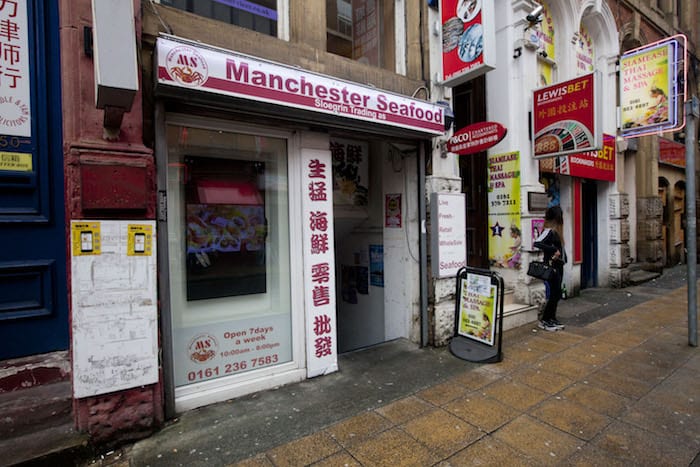
Together with the Yang Sing – in business for more than 30 years – restaurants like the Woo Sang Supermarket, New Emperor, Little Yang Sing and New Hong Kong served some of the best Cantonese cooking in the UK.
But even then, times were beginning to change. Many Chinese restaurants introduced south-east Asian elements into their menus. Pacific Thailand shared its Manchester Chinatown location with Pacific China. And Pan Asia featured Thai and Japanese dishes alongside Chinese regulars.
Warren Yeung, owner of the Little Yang Sing and the now closed Pan Asia, said: “Thirty years ago most of Manchester Chinese community came from Hong Kong, but since 2000 most migrants have come from mainland China and the majority of Chinese students at Manchester University are from Beijing and Shanghai. And the food they enjoy is quite different – drier, hotter, spicier.”
As a result the Chinatown’s cuisine’s centre of gravity is moving north and the food is becoming hotter and spicier and some of the landmark Cantonese restaurants have gone.
Hunan supplanted the Woo Sang in George Street. The New Hong Kong, dominant on the Faulkner Street side of the square, is permanently closed and earlier this year the pioneer Kwok Man, which had moved to bigger premises in Princess Street, closed its doors for the last time.
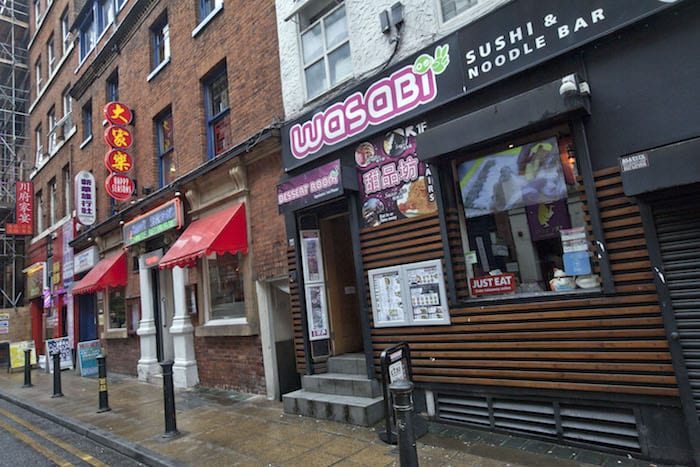
There have been other profound changes.
“The second and third generation of the original Hakka migrants who were born and brought up here don’t really want to be involved in the catering business,” says Warren. “There are now many more opportunities open to them in electronics, import and export and so on. And there is massive Chinese investment in the UK.
“To be honest, Chinatown isn’t any longer what it used to be and Manchester is a much bigger place. When I first came here in 1972, all I could see in Manchester restaurants were fish and chips and steak and kidney pie. Now the choice is enormous with lots of restaurants all over the city. Asian food is no longer predominantly Chinese but also Indian, Thai, Indonesian and Vietnamese.”
Chinatown may not be what it was, but Manchester owes its presence a huge culinary debt. At a time when British food was a laughing stock and steak with the trimmings at a Berni Inn or a croquette at the Kardomah was as sophisticated as it got, Cantonese cooking educated our palates. And look where we are now.
- This article was last updated 8 years ago.
- It was first published on 30 June 2017 and is subject to be updated from time to time. Please refresh or return to see the latest version.
Did we miss something? Let us know: press@ilovemanchester.com
Want to be the first to receive all the latest news stories, what’s on and events from the heart of Manchester? Sign up here.
Manchester is a successful city, but many people suffer. I Love Manchester helps raise awareness and funds to help improve the lives and prospects of people across Greater Manchester – and we can’t do it without your help. So please support us with what you can so we can continue to spread the love. Thank you in advance!
An email you’ll love. Subscribe to our newsletter to get the latest news stories delivered direct to your inbox.
Got a story worth sharing?
What’s the story? We are all ears when it comes to positive news and inspiring stories. You can send story ideas to press@ilovemanchester.com
While we can’t guarantee to publish everything, we will always consider any enquiry or idea that promotes:
- Independent new openings
- Human interest
- Not-for-profit organisations
- Community Interest Companies (CiCs) and projects
- Charities and charitable initiatives
- Affordability and offers saving people over 20%
For anything else, don’t hesitate to get in touch with us about advertorials (from £350+VAT) and advertising opportunities: advertise@ilovemanchester.com
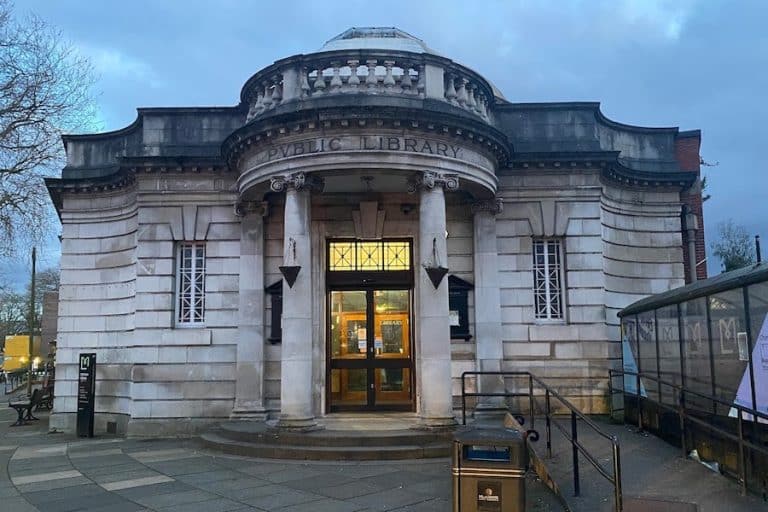
Chorlton Library gets a stunning renovation unveiling hidden treasures

How one selfless act sparked a career dedicated to saving lives
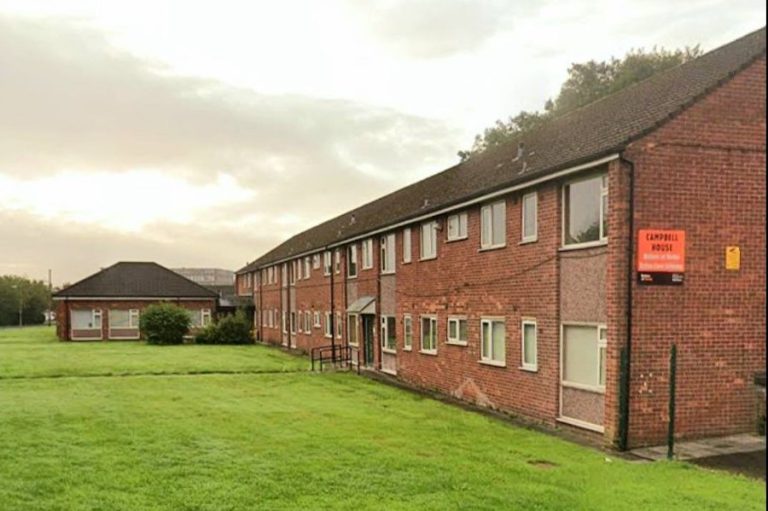
Former sheltered housing transformed into safe haven for vulnerable youth


Manchester and Los Angeles prove that opposites really do attract







